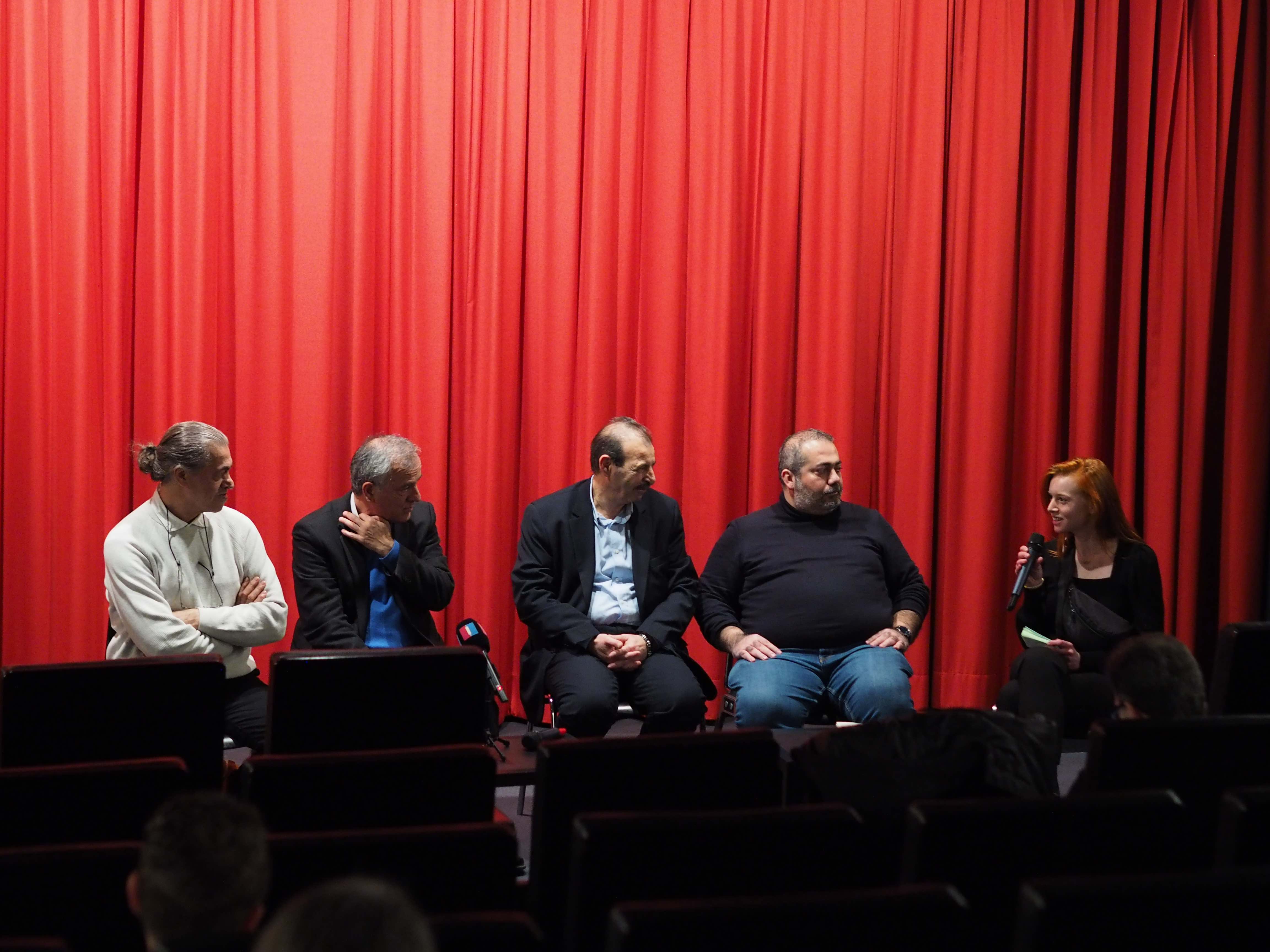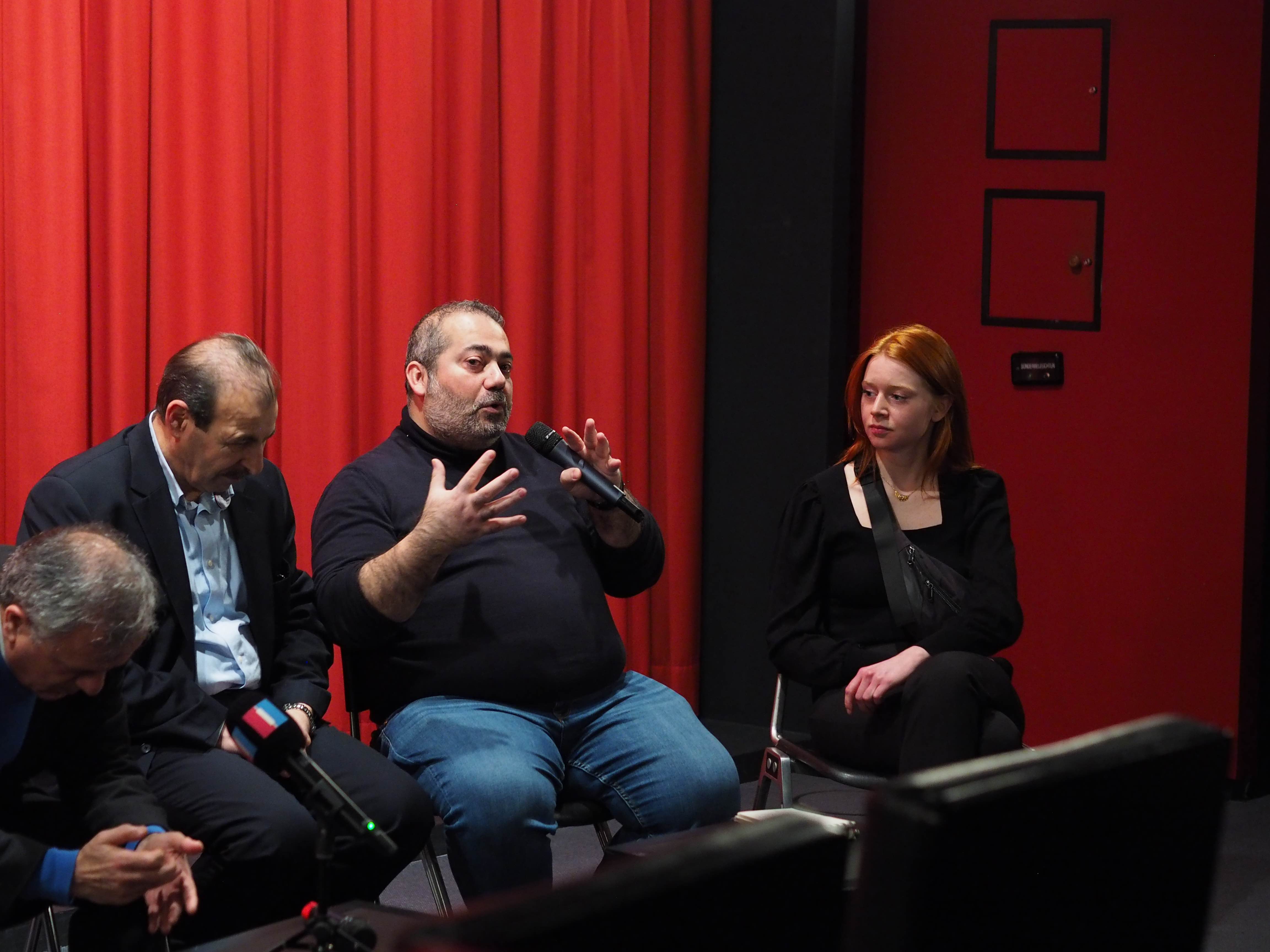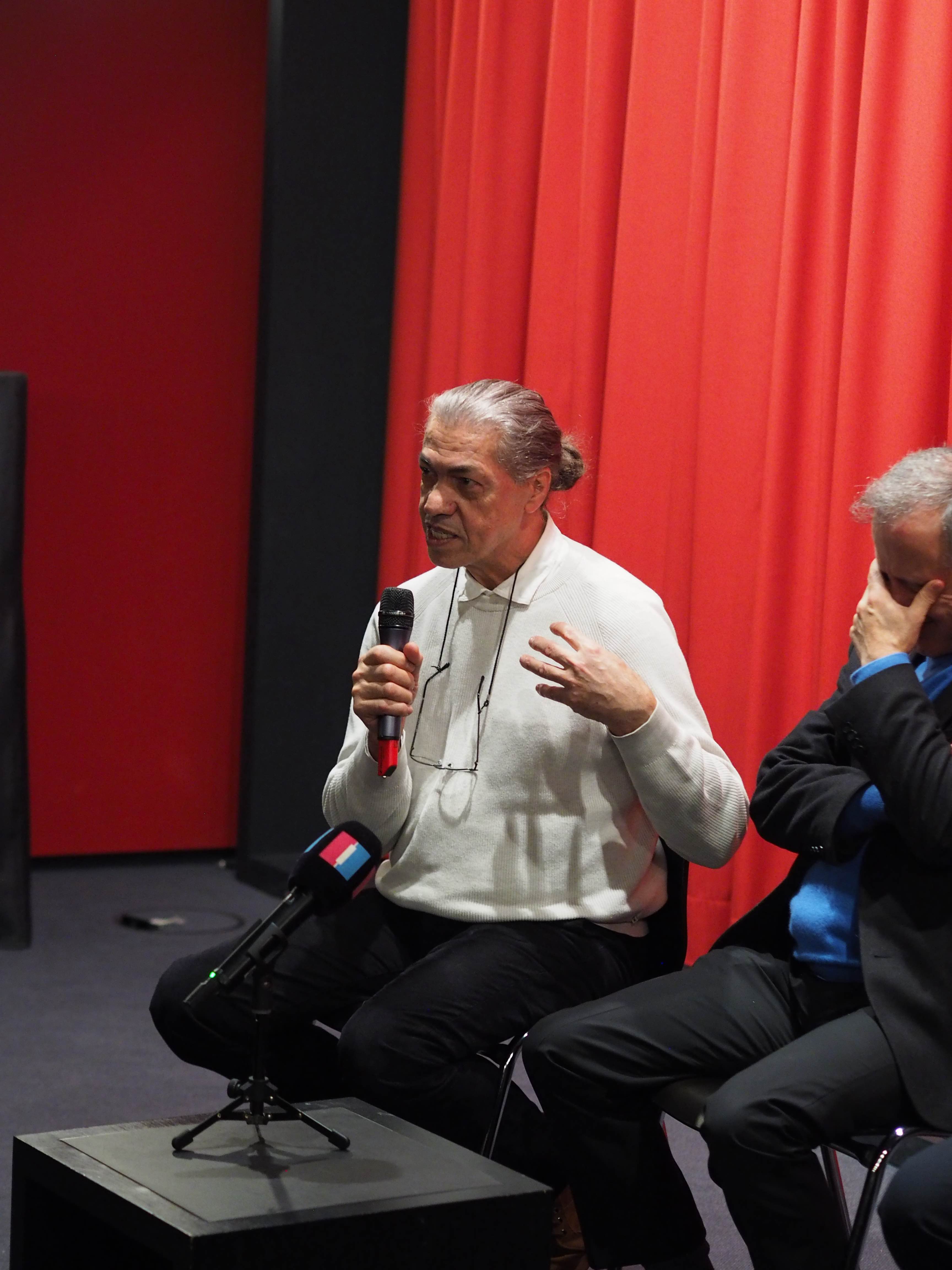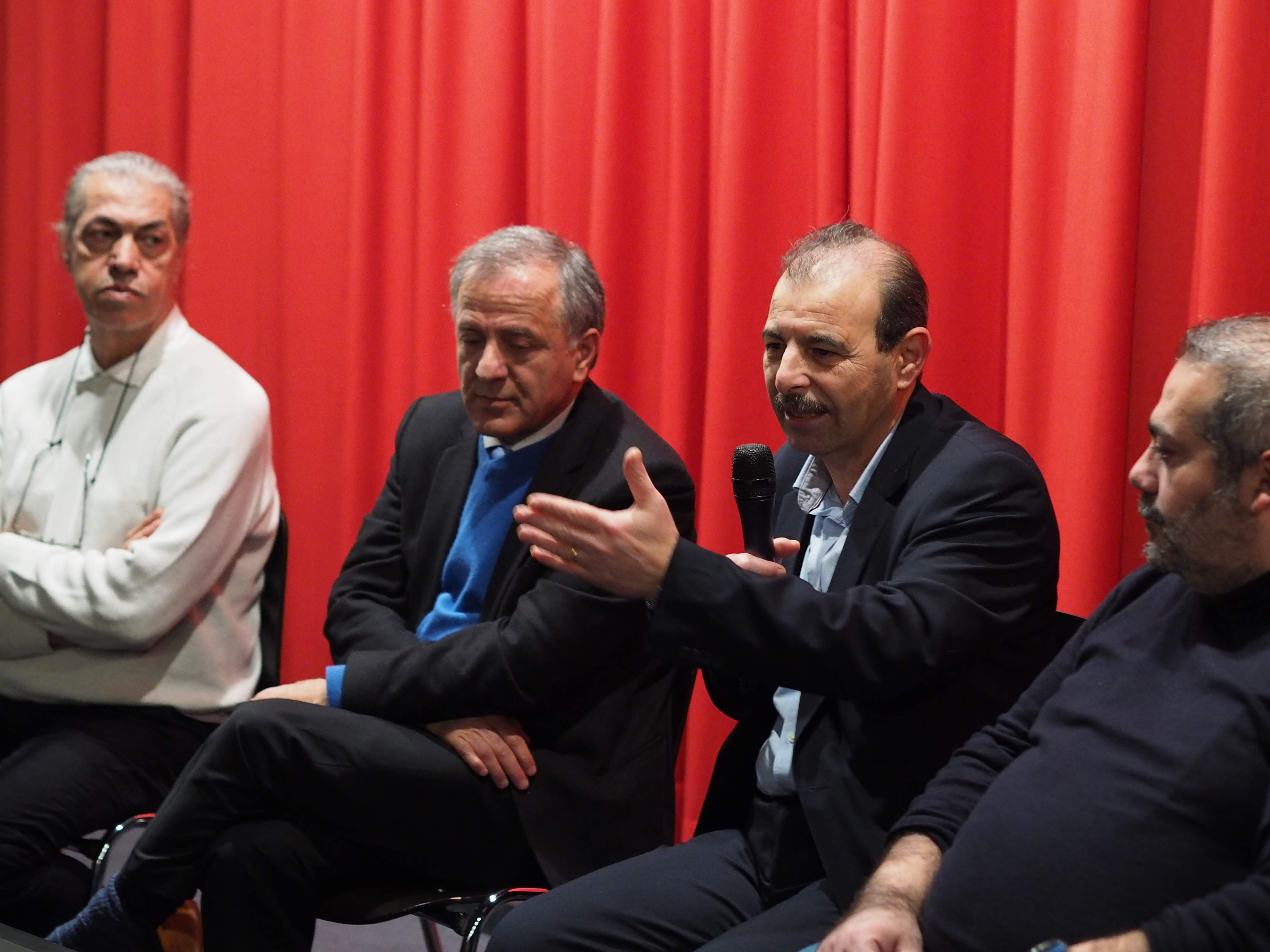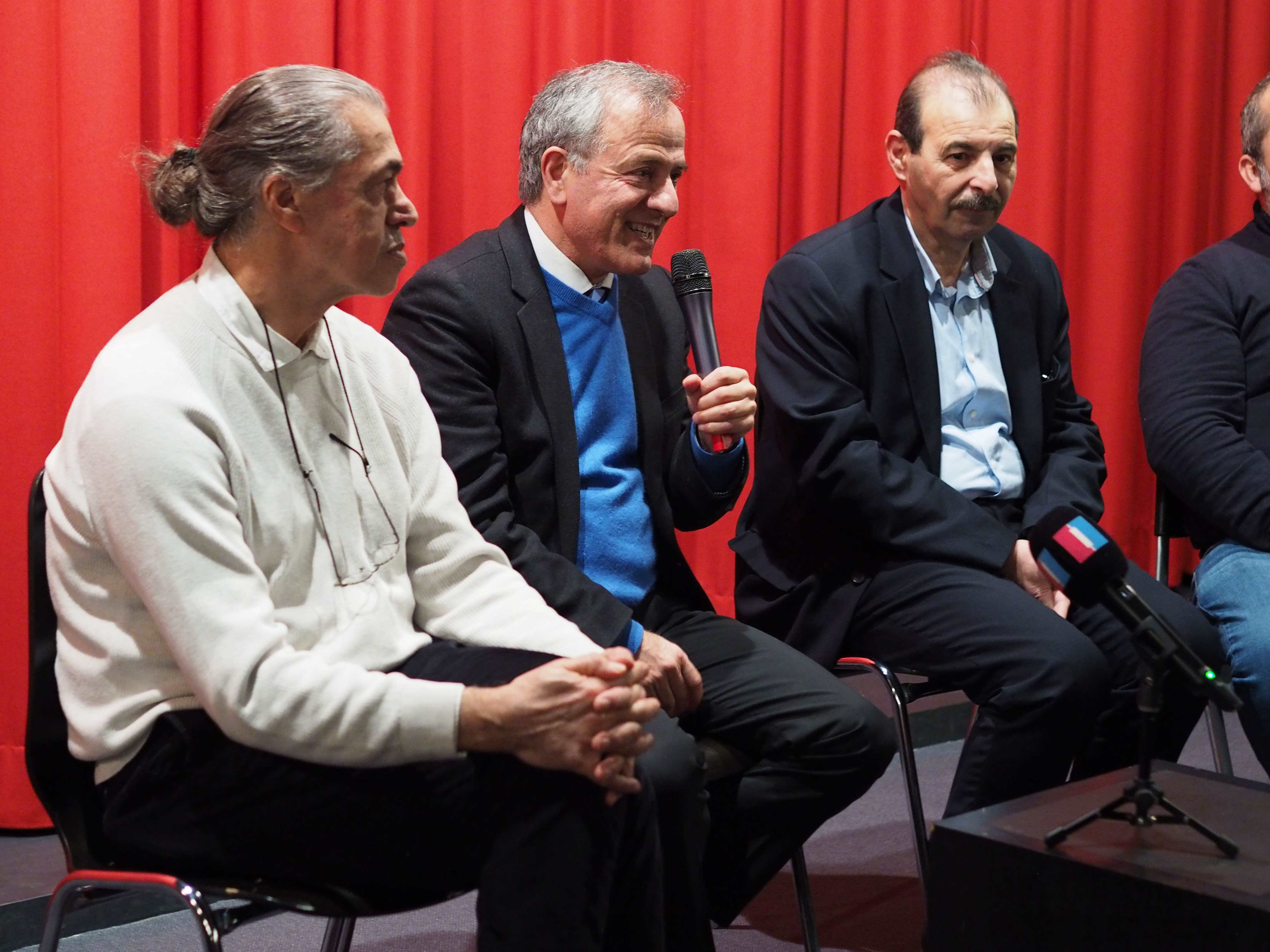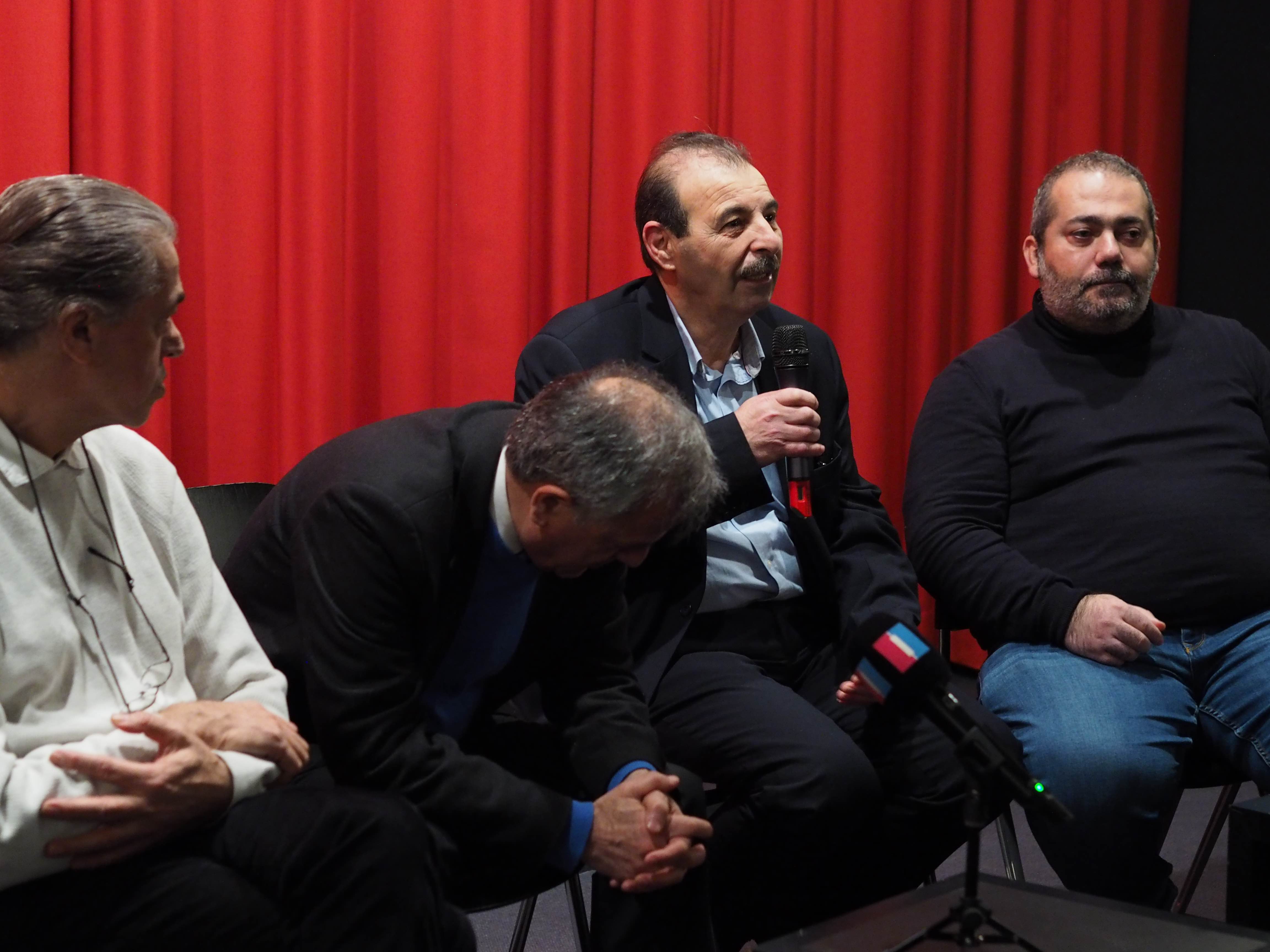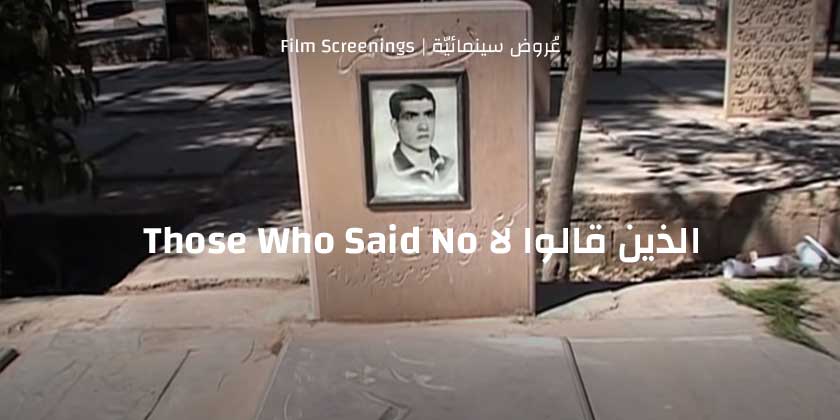
Image: Still from the film "Those Who Said No" by Nima Sarvestani
THOSE WHO SAID NO
Screening & Discussion with Nima Sarvestani, Iraj Mesdaghi & Anwar Al-Bunni, moderated by Jad Yateem
Arsenal, Berlin
JAN 29, 2023
On January 29, 2023, UMAM D&R and the MENA Prison Forum hosted a film screening at the Arsenal - Institute for Film and Video Art / Berlin of “Those Who Said No” (2014) along with a discussion with film director Nima Sarvestani, Iranian writer and human rights activist Iraj Mesdaghi, and Anwar Al-Bunni, head of the Syrian Center for Legal Studies and Research and a Syrian human rights lawyer.
The screening is part of a series of film screenings and events that the MPF has been hosting and will continue to host in different European and MENA cities. These events fall within the MENA Prison Forum’s scope and role in creating a physical and virtual dialogue space for carceral dynamics in the MENA region and functioning as a forum for experiences and specializations.
“Those Who Said No” (see the trailer here) is a 90-minute film by Iranian-Swedish director Nima Sarvestani that documents the massacres committed by the Iranian regime during the 1980s as told by survivors and traces the fates of a number of perpetrators. The film addresses the “Secret Fatwa” issued by Khomeini regarding the execution of tens of thousands of political activists in prisons during the 1980s, specifically in 1988 after the end of the war with Iraq. The film tracks the fates of those who supervised relevant investigation procedures and executions, managing to capture some of them on camera. It also documents the proceedings of the “People’s Court,” which held its first session in The Hague in 2013 and included testimonies of 25 key witnesses who were imprisoned and tortured, and those who lost their relatives in the string of torture and executions.
The screening was followed by a discussion session moderated by the MPF’s Jad Yateem. Discussant Nima Sarvestani is a Swedish-Iranian filmmaker who started his career as a journalist before beginning to produce documentaries; both his journalistic and documentary work has centered around human rights issues and social justice. Sarvestani lost his brother in the 1980s executions and has been living in Sweden since 1984. Also part of the discussion was Iraj Mesdaghi, a Swedish-Iranian writer and human rights activist who has been collecting books and articles on the mass executions carried out by the Iranian regime against its political opponents. He is one of the survivors whose testimony is included in the film. Anwar Al-Bunni also participated in the discussion; he is head of the Syrian Center for Legal Studies and Research and a Syrian human rights lawyer and activist since the mid-1980s. Al-Bunni has played a key role in prosecuting many of the Syrian regime’s officials accused of committing crimes against humanity in the German courts, the most famous of which is the trials in Koblenz.
The event was opened, introduced, and connected to the wider context of the on-going uprising in Iran that began in September 2022. Sarvestani began the discussion by talking about the challenges he faced while filming, especially as many interviews and footage were filmed in Iran. He also addressed his upcoming documentary, saying that it can be considered a second part of “Those Who Said No” as it will be about the trial of Hamid Nuri, of the Iranian officials sentenced to life in prison in Stockholm in July 2022 for his role in 1988 mass executions of prisoners in Iran. Mesdaghi survived the 1988 massacres and was directly involved in the efforts that brought Nuri to trial in Sweden. A short video about the coming movie was screened for the audience as well.
The discussion addressed similarities among repressive experiences in the east and west of MENA region regarding the struggle for justice and prevention of impunity, particularly through efforts made by both Mesdaghi in Sweden and Al-Bunni in Germany, for Iranian and Syrian crimes respectively, as well as the impact the current uprising in Iran has on the paths to justice and the prevailing culture of repression. Specifically the discussants addressed the similarities between how both regimes in Iran and Syria use imprisonment and massacres as a way to enact revenge against their political opponents in order to show power after being threatened or defeated. Of note are the 1988 prison massacres in Iran after the end of the war with Iraq, and the 1980 Palmyra prison massacre in Syria in response to a failed assassination attempt against Hafez Al-Assad. Mesdaghi and Al-Bunni talked about their efforts in bringing perpetrators from Iran and Syria into justice in both Sweden and Germany, comparing the similarities and differences between the two judicial systems. They shared their insights into the best ways to collect evidence and eyewitnesses to ensure a strong case in the court. The panelists also discussed the possibilities of regime change in Tehran, and expressed their thoughts about how the current uprising in Iran can affect the political tracks and uprisings in the region, especially Iraq, Syria, and Lebanon.
During the Q&A discussion, members of the event asked about Mesdaghi’s experiences escaping from Iran after he survived the prison’s massacres and the possibility of bringing perpetrators from the Islamic Revolutionary Guard Corps (IRGC) forces and its affiliated militias in Syria to justice.
